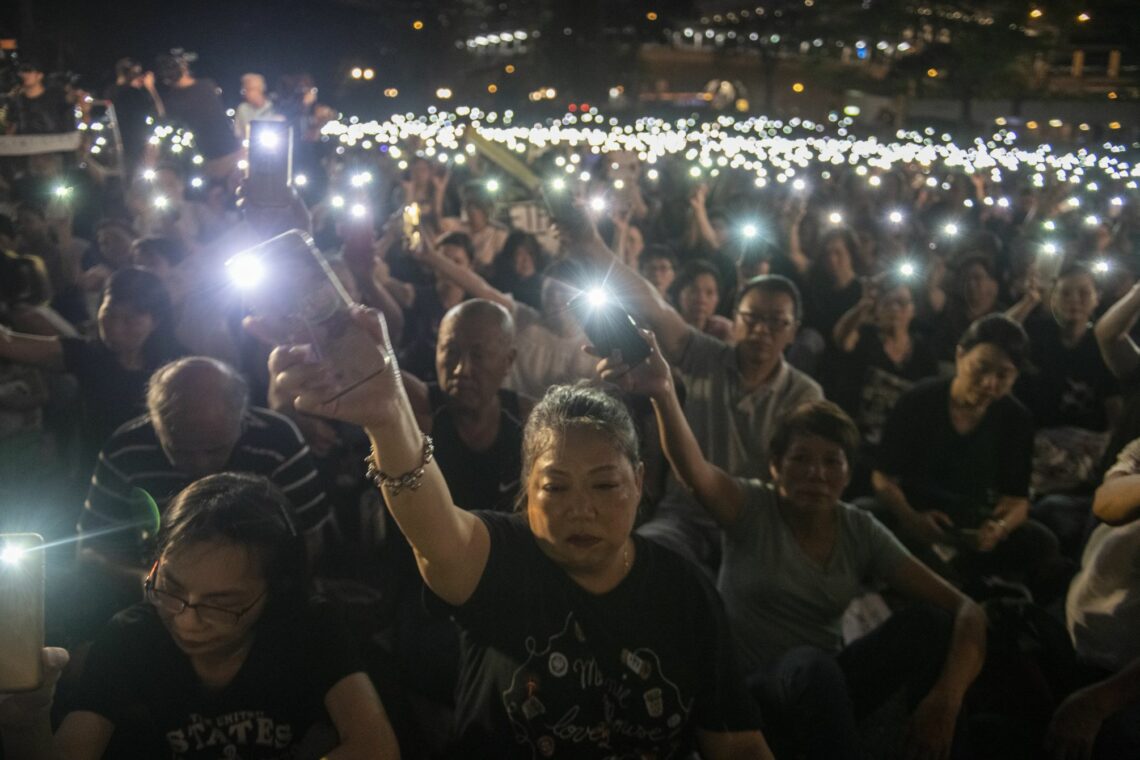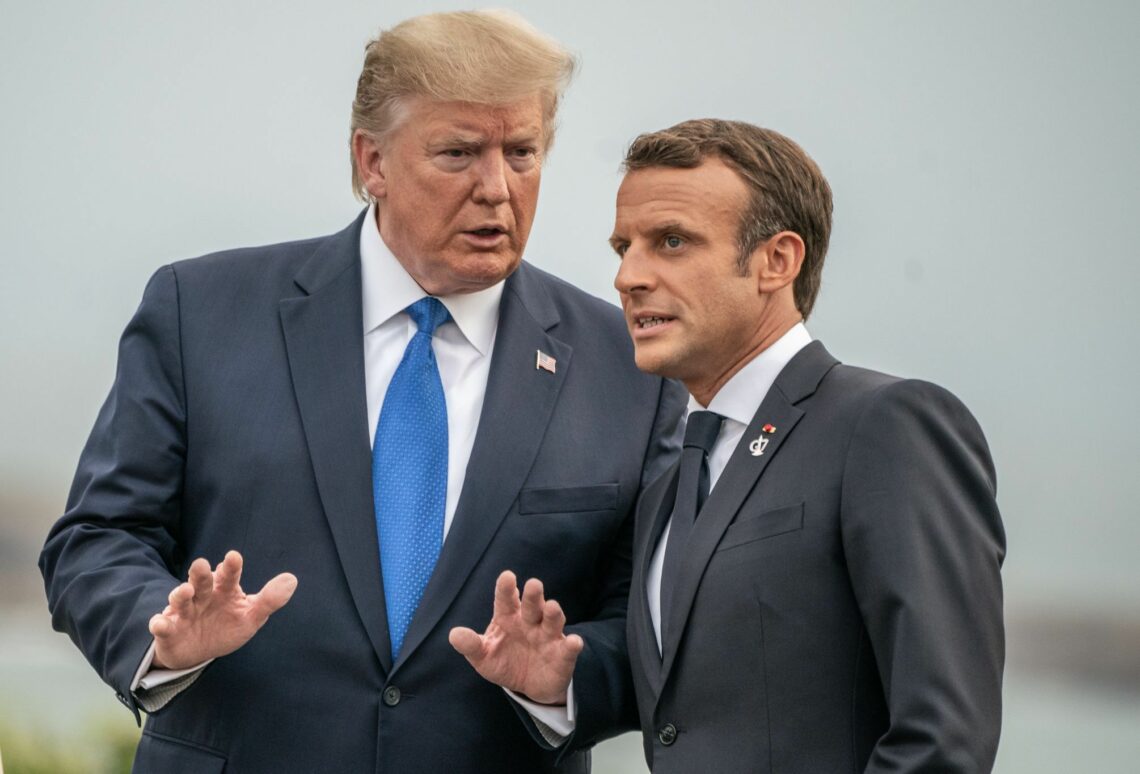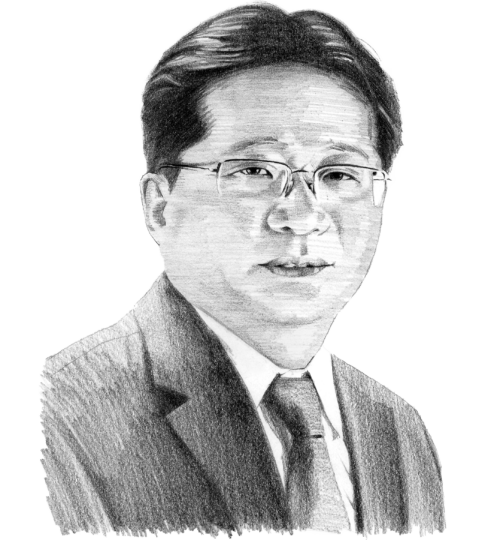Social media’s historic political disruption
When it comes to politics, social media is a historic technology. It has destroyed the monopoly over the dissemination of ideas, connects like-minded people and empowers political fringe groups.

In a nutshell
- Social media is destroying the monopoly over ideas
- Identity-based communities are growing more powerful
- Democracies will become more unruly and compartmentalized
- Authoritarian regimes will find it harder to rule through fear
As social media’s effects on politics become more evident, it is now clear that it can be compared to some of the most epoch-changing technologies in human history.
For example, the introduction of the printing press in the 15th century brought profound consequences. The revolutionary ideas of John Calvin and Martin Luther became readily available in printed form to disaffected Catholics in many European languages.
The Protestant work ethic fed the capitalist ethos, and innovation fueled by capitalism has changed the world. As printed books in many European languages became available, nationalism found fertile ground, and nation-states – as opposed to empires – surfaced as the dominant players in international relations. Nicholas Copernicus’s On the Revolutions of Heavenly Spheres pioneered the mass printing of scientific works. An age of reason and rationality followed, leading to the world we know now.
Until recently, a few sources essentially monopolized the tools of dissemination.
Printing made it possible to spread ideas quickly, cheaply and widely. Still, until recently, a few sources essentially monopolized the tools of dissemination: television stations, newspapers and printing houses. Regardless of how democratic or open-minded those sources were, their number was still limited – and they determined which ideas the public could access.
Authoritarian limits
In authoritarian states, restrictions are far-reaching. Rulers decide what people watch and read. Legitimacy is based on the belief that the regime is just, serves the interests of the people and is necessary, given the outside enemies. What people watch and read creates their reality, however different it might be from others’.
The most totalitarian regimes fall when people realize that a free, democratic society offers a better future.
Even oppressive, one-party regimes tend to lose power when the masses mobilize against them, as the events of the late 1980s and early 1990s in Eastern Europe showed. The most totalitarian regimes can maintain power through fear and repression, but even they fall when people realize that a free, democratic society offers a better future.
Censorship and ideological propaganda therefore play a huge role in maintaining oppressive regimes. Only murderous dictatorial regimes rely exclusively on violence to maintain power. Economically successful one-party or one-man regimes have much more legitimacy – their hold on power is based on more than the ideological machinery.
Monopoly destroyed
The advent of social media destroyed the monopoly over ideas. Individuals can create their own discourse and be heard by larger audiences than established television networks or newspapers. The print media industry is already shrinking. Old-fashioned television stations are following suit, being replaced by YouTube channels, Facebook Live videos, and the like. In Ukraine, the Euromaidan protests of late 2013 and early 2014 began with a single Facebook post.

For democracies, the age of social media has meant the demise of old party systems that relied on active members going door-to-door to promote candidates and platforms. With grassroots party institutions being replaced by internet-based social networks, individual politicians are becoming political parties in themselves.
United States President Donald Trump and French President Emmanuel Macron may have different political views, but they are both symbolic of this new trend. Individual politicians are replacing old political machines. Those who manage the feat do not always have rational, reasonable or even deliverable proposals, but they readily find support among voters. Those whose ideas resonate in the minds of many people gain legitimacy. While this may have held true before, now these politicians can rely more heavily on their Twitter and Facebook feeds rather than the party machinery to reach their audience.
This trend is likely to continue, meaning modern democracies are on the verge of drastic reform. Voters who did not care enough to express their views because politics seemed too inaccessible are now finding issues and people that excite them. Passionate minorities who feel strongly about various issues, from immigration to the environment, race, culture, healthcare and education – even sports, art, and more esoteric subjects – are becoming more compartmentalized and self-righteous. They live in their own worlds.
The age of reason and rationality is giving way to an age of many truths and self-assured assumptions.
Even proponents of the most outlandish ideas, who were once marginalized, can now find online communities and thrive inside their bubbles. Such people do not feel the need to prove themselves to the outside world because they find acceptance in their online community. The age of reason and rationality is giving way to an age of many truths and self-assured assumptions that do not require reason.
Disparate constituencies
Thanks to their online presence, individual politicians now have immense political leverage. The key to a successful campaign is creating a core base of staunch supporters across this myriad of constituencies.
How can such a wide array of political communities be unified so that collective action can be taken? The Brexit debate in the United Kingdom is a vivid example of how a democratic nation with a large spectrum of positions on a single, crucial issue cannot come up with a cohesive, unified policy.
Bringing together these ever-smaller political units will be based on ideological and cultural identities.
Some countries in Europe find it difficult to form national governments for years because their politics is so fractured. It is likely that the more advanced a democracy is, the more compartmentalized its politics will become. Bringing together these ever-smaller political units will be based not on national identity, but on ideological and cultural identities.
Nation-states are giving way to identity-states or identity-based communities. These communities are not bound by national borders. A middle-class child living in Asia might find more in common with a middle-class child in the U.S. or Africa than with a working-class child of the same nationality. The middle-class kids eat the same food, watch the same movies, wear the same clothes and read the same books. Most likely they even speak a common language: English.
Though living in the same country, the children from two different social groups may have completely different tastes. In the past this may have also been true to a degree, but outside of the West, it was only a small number of top elites that enjoyed the privilege of a Western lifestyle. Now, the middle class is extremely broad, and it is merging – in terms of identity – across the globe. Social media platforms are cementing these similarities inside the identity communities.
Globalization of politics
More and more issues can only be solved at a worldwide level, driving the globalization of politics. Environmental issues are just one example, but even technical matters like taxation can now be addressed at a supranational level. Global politics, with growing compartmentalization along identity-community fault lines, will be the hallmark of the coming social network age.
Such developments call for a United Nations based not solely on national identity but also on idea-communities.
This may mean that global politics will take shape in a manner similar to the current structure of the European Parliament. The center-left, center-right, greens, far-right, and others from each European Union country come together to form unified factions. On a global scale, political communities are even more fragmented.
Such developments call for a United Nations based not solely on national identity but also on idea-communities. Environmentalists, gender activists, animal rights activists, cultural activists, fiscal conservatives and others will require their own independent seats at the tables of global decision-making bodies. These organizations will become increasingly powerful.
Authoritarians’ conundrum
For authoritarian regimes, all this is a significant problem. They are losing control over instruments of mass mobilization. Today, a single person’s social media post can snowball into a movement. Collective action, like holding a demonstration, is becoming much easier to coordinate and harder to prevent. Fear and suppression are more difficult to instill as mobilization via social networks shows the power of large numbers. No regime can put a policeman next to every citizen.
The most brutal regimes that rely solely on fear of repression are living their last days.
Fear is also more difficult to instill in people when individuals see the number of like-minded citizens growing. Once a critical mass has been reached, no regime can withstand it. Now, this critical mass is much easier to gather. Voices grow louder and louder online, until they become overwhelming. One does not even need to take to the streets: mass expression of a particular view has become effective public action, and it is as easy as posting something on Twitter or Facebook. In this age of social networks, even the most brutal of regimes that rely solely on the fear of repression are living their last days.
Legitimacy in such circumstances derives from continued economic growth and social development. The better people’s living standards, the greater the legitimacy of the regime. In Singapore, for example, people are content with the country’s top-notch economic performance and social services, even if its democracy is imperfect. It defies the belief that the middle class demands more freedoms as it grows richer.
However, Singapore’s case is one of near-perfect meritocracy, not an autocratic regime using a ruthless police state to crush any dissent. Its system of social mobility based on educational merit works very successfully. There is little corruption, at least according to international surveys. Despite the overwhelming systemic advantage of the ruling party, elections are competitive.
This model may become the only viable one for authoritarian regimes. Their legitimacy will be derived from successful governance.
Irrelevant mechanisms
Politics is changing in the age of social media for both democratic and authoritarian regimes. For democratic countries, the ability of governments to rule through cohesive collective action will become an even greater challenge. If politics become captured by small groups that staunchly hold their positions and make it impossible to find common ground, today’s democratic mechanisms will become irrelevant. Already, nation-states are becoming weaker players.
For less democratic states, legitimacy based on economic performance, merit-based social mobility will be crucial to surviving, as discontent could quickly become overwhelming.








